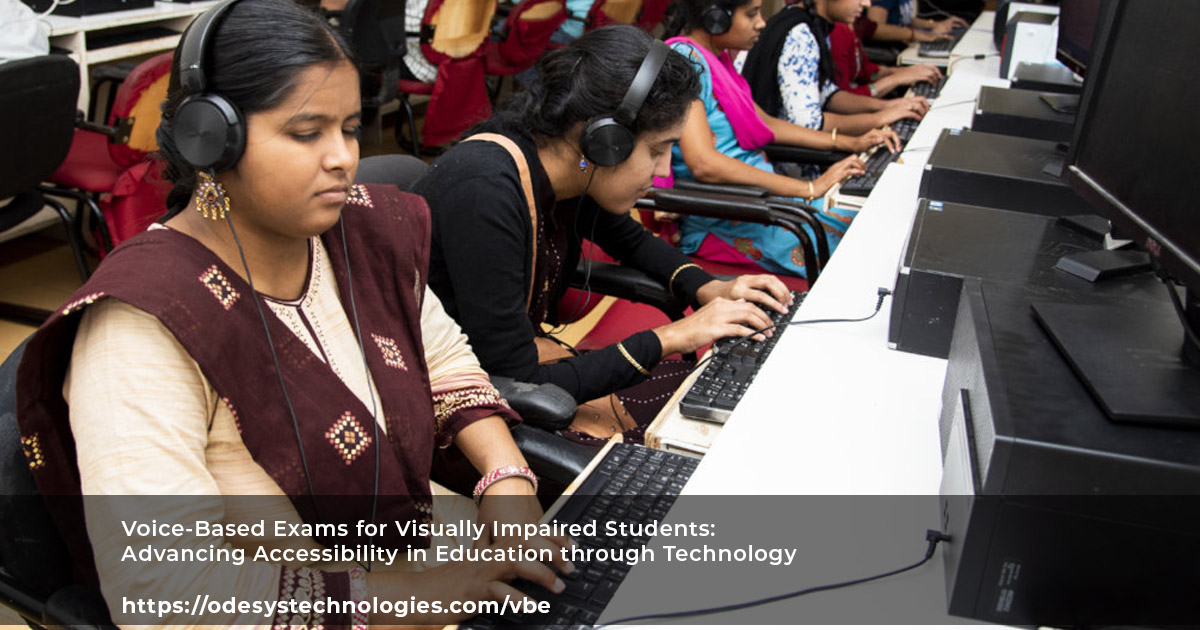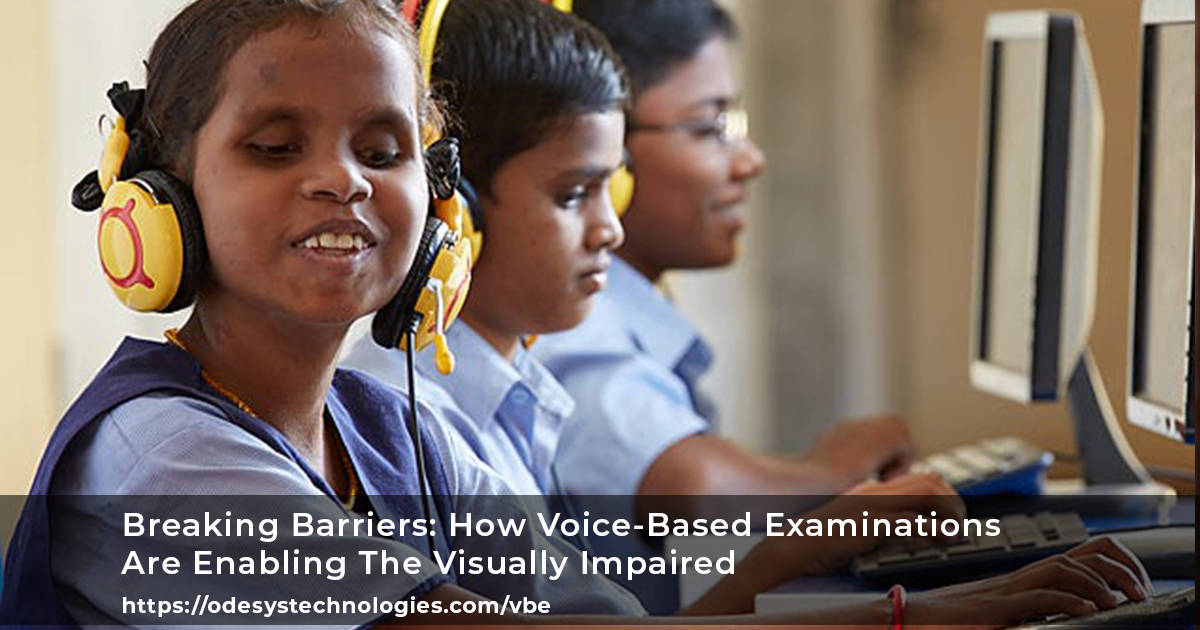
Voice-Based Exams for Visually Impaired Students: Advancing Accessibility in Education through Technology
In the field of education, accessibility is a key factor in ensuring that all students have equal opportunities to learn and succeed. With the rise of technology, particularly voice-based systems, it has become increasingly possible to make education more accessible to students with disabilities, particularly those who are visually impaired. One such application of this technology is voice-based examinations, which are becoming more widely used as a means of enabling visually impaired students to take tests and exams more independently.
What are Voice-Based Exams?
Voice-based exams are a form of adaptive testing that allows students to take exams using their voice, rather than having to read and write their answers. In a voice-based exam, students are presented with questions, and they respond by speaking their answers into a microphone. The system then records their answers, which are then transcribed and graded by the computer.
Why are Voice-Based Exams Important for Visually Impaired Students?
For visually impaired students, traditional written exams can be a significant barrier to learning and academic success. These students often require specialized accommodations, such as extra time to complete exams, a reader to read the exam questions and instructions, and a scribe to write down their answers. These accommodations can be time-consuming and costly, and they may not always be available in all educational settings.
Voice-based exams provide a more accessible and efficient solution to these challenges. By using voice recognition technology, students can complete exams independently and in real-time, without the need for additional support or accommodations. This allows them to demonstrate their knowledge and skills more effectively, and to participate more fully in their education.
Advantages of Voice-Based Examinations
There are several advantages to using voice-based exams for visually impaired students, including:
-
Improved Accessibility: Voice-based exams are a more accessible alternative to traditional written exams, as they enable students to take exams independently and in real-time, without the need for additional support or accommodations.
-
Time-Saving: Voice-based exams are faster to complete than traditional written exams, as students can answer questions more quickly by speaking their responses.
-
Cost-Effective: Voice-based exams can be more cost-effective than traditional written exams, as they do not require the same level of specialized accommodations or support.
-
Accuracy: Voice-based exams are highly accurate, as they use advanced voice recognition technology to transcribe and grade student responses.
-
Reduced Stress: Voice-based exams can help to reduce stress and anxiety for visually impaired students, as they provide a more comfortable and familiar testing environment.
Challenges of Voice-Based Examinations
While there are many benefits to using voice-based exams for visually impaired students, there are also some challenges to consider. These include:
-
Technology Limitations: Voice recognition technology is not yet perfect, and there may be some errors or inaccuracies in the transcription of student responses.
-
Training Required: Students may require some training to use voice-based exam systems effectively, particularly if they are not familiar with the technology.
-
Limited Compatibility: Voice-based exam systems may not be compatible with all devices and operating systems, which could limit their accessibility in certain educational settings.
-
Security Concerns: There may be concerns about the security and privacy of student data when using voice-based exam systems.
Conclusion
Voice-based exams are a powerful tool for advancing accessibility in education, particularly for visually impaired students. By enabling students to take exams independently and in real-time, voice-based exams can help to level the playing field for all students and enable them.

